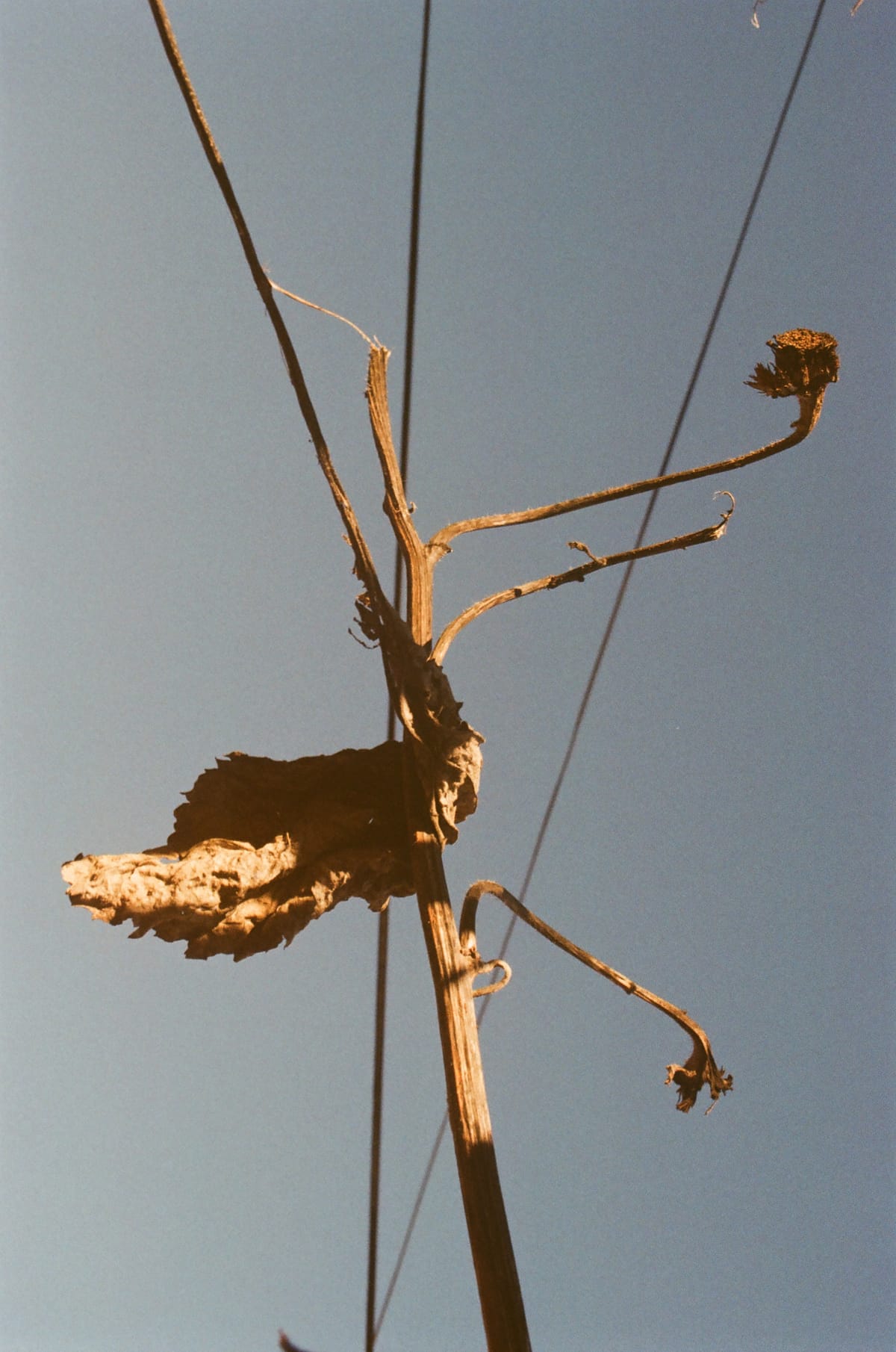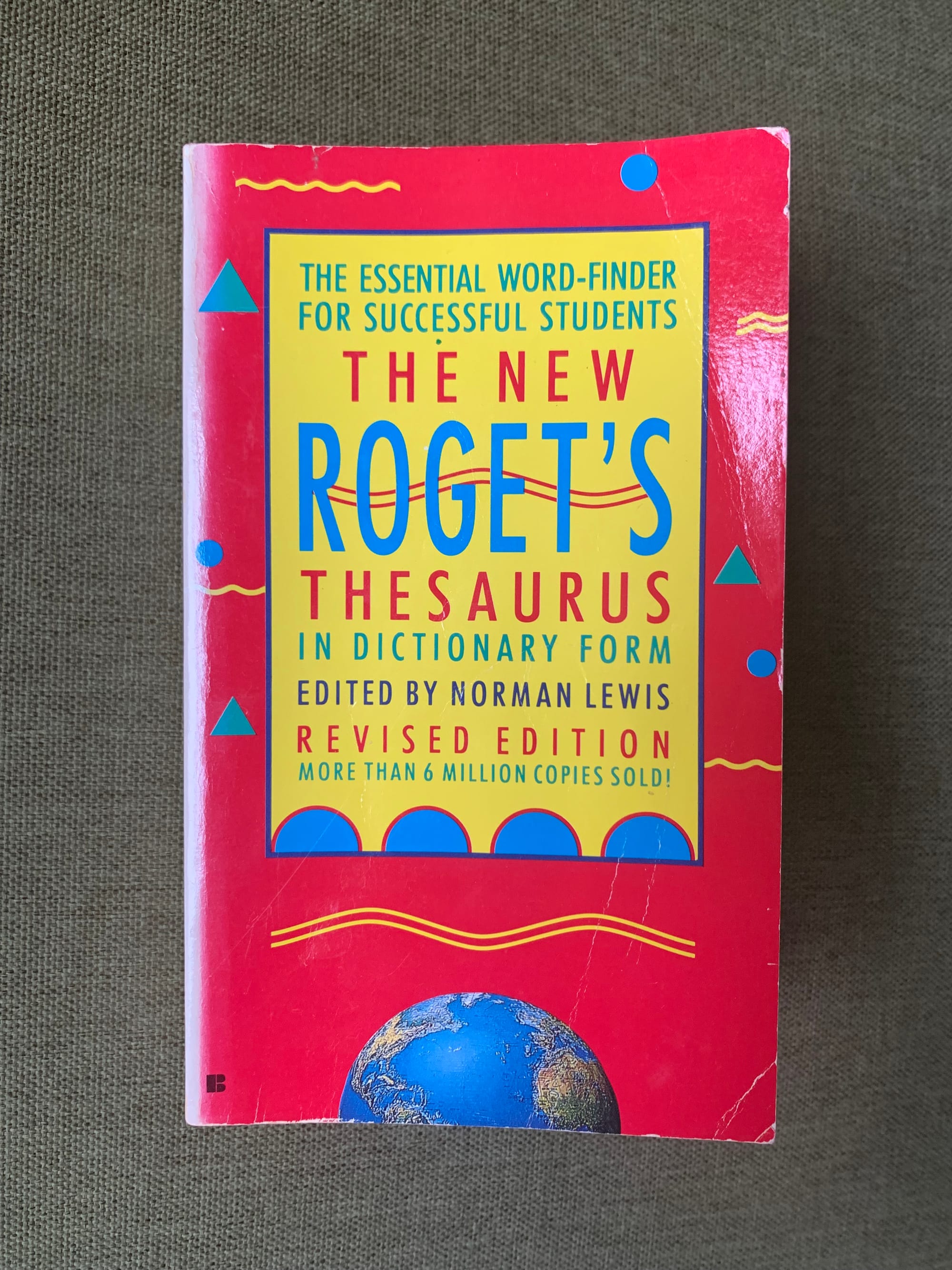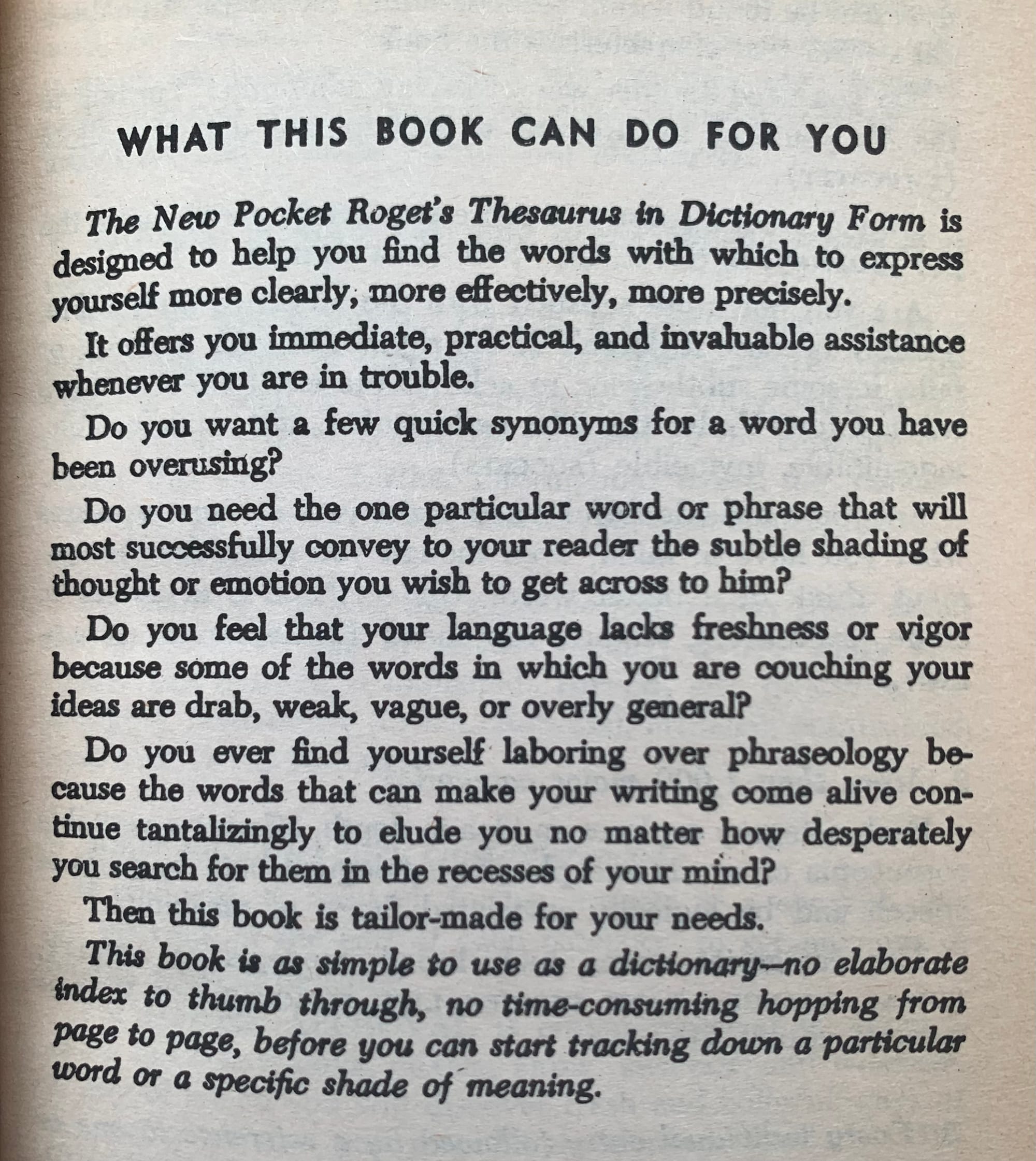My High-Tech Inspo: A $2 Thesaurus and a Toothbrush. (Really though.)
From “Creative Discipline” to “Creative Compass,” and the questions we don’t ask.

Estimated read time: 6 minutes.
I don’t feel like writing today.
Both important ingredients are missing: the time to write much, and the sense of worth, like it’s a day when my voice feels unnecessary, maybe unimportant, and so maybe it’s just better to be quiet, to not write.
And yet. I set an intention, I made a goal, I have a thing in mind. Add to the General Blog every week.
And so. Ahem.
[Note from the other side: I kind of love how this post turned out. I think you’ll like it too.]
I’m not a sociologist, but I assume questions are part of every language, though our questions are not universal in meaning. For example, I heard a story that in some tribal cultures, the concept of How many? exists only in a very limited countable sense, like up to five or so, because abstract ideas of quantity are not salient to them or how they view the world. Their brains, minds, hearts, are focused elsewhere. Not on numbers.
Anyhoo…
Last week, in the first-ever Creative Compass group session, I asked a few things of the eleven-or-so people in the room.
A “What” question to start: What do you want to get out of the group? (I suppose this could also be viewed as a “Why” question.)
I asked this Q because it’s always a rewarding one in the book club I facilitate. In my view, it’s a question not to skip. The answers glittered!
As people introduced themselves, I invited them to speak about: Their why. Their where. Their media. Their history. Their obstacles. Their goals.
(Notice the two Qs in there.)
We ended the session with an “assignment” so to speak: take a closer look at two final questions throughout the week.
I share them now on the blog so they can reach a broader audience. You're likely involved in creative endeavors yourselves. What arises when you reflect on these two questions?
(1) the Why - What’s your WHY for your project(s)? (themes can span motivations, outcomes, benefits, and more.)
(2) the Where - WHERE are you with your project(s)? (beginning, refining, developing, etc.)

When I compare these questions, it occurs to me that in mainstream culture, in 21st century United States at least, we give more attention to the Why than the Where when it comes to “Executive Functioning” or getting things done.
For example, let’s take brushing our teeth: from the time we’re young, we’re taught Why we need to brush our teeth.
Caregivers do teach the Where as well, to a “practical” degree: Where to find the brush and toothpaste, Where to move it in your mouth. And of course the How and What are in there too.
But this morning, as my mind was on this Where question, I brushed my teeth and found I was tuning into the sensory experience of it. (This wasn’t intentional, it just happened. Not sure why.)
Where do the sensations arise on my gums, teeth, and tongue? The What was mixed in there too: what it felt like, where it tickled, and I played around with different motions with curiosity about how they felt.
I noticed what it was like to welcome these sensations.
I realized it felt like a small miracle, like a spa experience for my mouth. I’ve never been that present with tooth-brushing, with the Where of it. New joy level unlocked.
And yet, we don’t often stop to encourage our children, “OK, it’s time to brush your teeth. Now Where do you notice the sensations as you do so?” And that’s not insignificant. It’s a reflection of our cultural priorities, including the requirements of our capitalist system, and the limitations of our language (it’s clunky to talk about this stuff), and more.
All this to say - I want to give "Where" more of a stage. (In a later post though. This is getting long.)
So, back to the thesaurus.

We’re in a time (a When) when it seems everything need to be turned into an app, and everything seems to need a dose of AI.
Now if you notice yourself getting defensive - I’m not criticizing these tools as aids to access. I’m pointing out the constant cultural messages that these “smart” digital tools are superior to analog, or simpler, technologies. And that’s just not always true.
Personally, for reasons I will write about someday (but which are also somewhat mysterious to me), I prefer the “analog,” the “old school,” whenever possible.
You’ve heard me talk about this ongoing Creative Compass group a lot, and in a recent blog post I described how the idea was born back in May of this year.
But this group had a different name right up until the last minute. For about 12 weeks, I was calling it Creative Discipline.
I’d heard feedback that the name was unclear, like, “In this group, would I learn creative ideas for disciplining my child?” And I’d been wondering whether the word discipline struck the right tone anyway. So I’d been open to something different.
That’s a perfect job for AI, right? “Give me a catchy name for this concept.” But, I wanted to see what might arise with an analog tool, with something that showed up in my environment. I was looking for Where the word might show up.
In August, when my mind was abuzz with ideas for the first "Creative Discipline” cohort starting in September, I bought a $2 thesaurus from 1978 at a library book sale during a family trip to Oregon. A few days later I looked up “discipline,” hoping for a good synonym, but nothing inspired me.
So I started flipping through the thesaurus. (Note: this easy “flipping through” from front to back, back to front, in alphabetical order, would not be possible with a digital tool. So the analog had a clear benefit in this regard.)
I was looking for something that started with the letter C, to match Creative.
After not too long, less than 5 minutes, the word Compass appeared, and that was that.
The word choice was mostly about sounding catchy. I didn’t have a real meaning in mind. And yet…
Compass implies directionality, no? Compass implies location? Compass implies Where.
Happy tooth-brushing.
Signing off -
Caroline
P.S. Want to know what a thesaurus can do for you?

P.P.S. Sign up below, or invite others, to join me on a blogging journey to bring the science and practice of Executive Functioning into our daily lives, where it belongs. You’ll get:
*More nuance and context than a lot of media on the subject.
*Perspectives from various traditions: philosophy, religion, psychology, the “natural” world, and more.
*Personal memoir from my own life and learning.
*Deep-dives delivered with care for a widely diverse audience.
… all right to your email inbox.